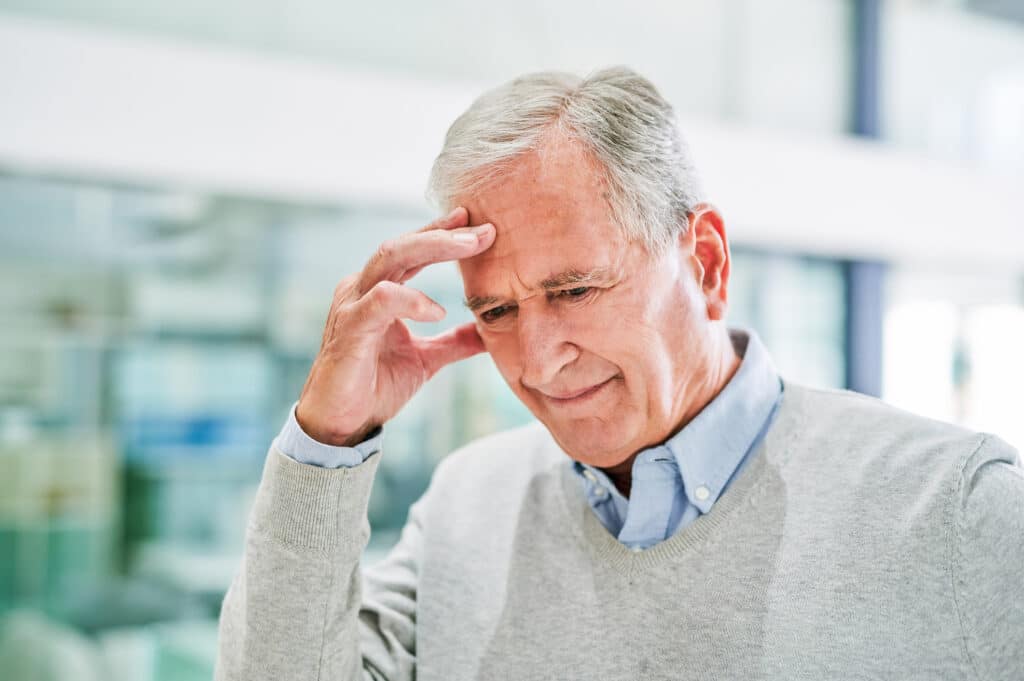Stroke care specialists in Albuquerque, New Mexico
Welcome to Lovelace Medical Center’s comprehensive stroke center, a 12-bed dedicated stroke unit with neurosurgery services and 24/7 neurology coverage. Our trained stroke care team is made up of neurologists, emergency department physicians, registered nurses, respiratory therapists, and emergency staff. Together, our team is committed to swiftly assessing stroke symptoms and providing immediate, life-saving treatment. Our stroke center ensures 24/7 accessibility for urgent patient assessments across various hospital departments so you can receive the expert care you deserve as soon as possible. At Lovelace, we are dedicated to providing unparalleled stroke care services, ensuring a continuum of care that supports each patient’s journey toward recovery.

Comprehensive stroke care at Lovelace Medical Center
The highly-trained stroke team at Lovelace Medical Center is prepared to quickly assess stroke symptoms and determine the proper immediate treatment. Our comprehensive stroke center team consists of neurologists specially trained in stroke diagnosis and treatment, emergency department physicians, registered nurses, respiratory therapists, and emergency department staff who provide immediate stroke care with your successful recovery in mind.
Our team can be accessed 24/7 in response to the emergency department, as well as other hospital departments, for urgent patient assessment. Other members of the Lovelace Medical Center team include physical, speech and occupational therapists, dietitians, case managers and social workers. The team also relies on the excellent services of Lovelace Medical Center’s lab, pharmacy, and radiology departments.
Please note that we offer stroke rehabilitation services at Lovelace UNM Rehabilitation Hospital and additional stroke treatment at Lovelace Westside Hospital.
Signs of a stroke
Recognizing the signs of a stroke can be life-saving. Remember to BE FASTT:
- Balance: Is the person losing their balance or having trouble walking?
- Eyes: Is the person having trouble seeing out of one or both eyes?
- Facial droop: Ask the person to smile. Does one side of their face droop?
- Arm drift: Ask the person to raise both arms. Does one arm drift down?
- Slurred speech: Ask the person to repeat a sentence. Is their speech slurred or difficult?
- Terrible headache: Does the person have a sudden, severe headache?
- Time is Brain: If the person shows any of these symptoms, it’s time to call 911.
What’s done in the first minutes or hours after a stroke may determine the level of recovery the person will achieve. Lovelace Medical Center treats every incoming stroke patient as an emergency. Patients arriving in the emergency department experiencing stroke symptoms are evaluated for possible treatment with tNK (Tenecteplase), a powerful clot buster that can save brain tissue with t-PA (Tissue Plasminogen Activator).
Lovelace Medical Center’s emergency medicine physicians have been trained in the assessment of acute stroke and work in collaboration with our highly trained neurologists to ensure a quick diagnosis.
Stroke rehabilitation
In collaboration with specialists such as physical, speech, and occupational therapists, dietitians, case managers, and social workers, our stroke rehabilitation team guarantees a holistic approach to stroke recovery.
Partnering with Lovelace UNM Rehabilitation Hospital, our comprehensive stroke rehabilitation program addresses each patient’s unique challenges, from speech and vision issues to memory, balance, and physical coordination. We focus on helping you relearn and improve your daily tasks and function, tailoring your rehabilitation program to meet your unique needs.
Learn more about our rehabilitation services.
Our stroke center awards and accreditations
Being honored for excellent patient care is the best recognition a hospital can receive. These certifications recognize Lovelace Medical Center’s ongoing dedication to excellent stroke care, but our greatest reward is serving our patients. That’s why our stroke specialists are committed to turning treatment guidelines into lifelines.
Our accreditations and awards include:
- American Heart Association/American Stroke Association’s Get With The Guidelines Gold Plus Award: This award recognizes Lovelace Medical Center’s commitment and success in implementing excellent care for stroke patients, according to evidence-based guidelines.
- American Heart Association/American Stroke Association’s Target: Stroke Honor Roll: This award recognizes Lovelace Medical Center’s commitment to improving stroke care.
- DNV-GL accreditation as a Primary Stroke Center: DNV-GL’s Primary Stroke Center Certification is based on elements from their NIAHO hospital accreditation standards, as well as requirements from the Guidelines of the Brain Attack Coalition and recommendations of the American Stroke Association. A list of programs certified by DNV-GL is available at www.dnvglhealthcare.com.
- The Joint Commission (TJC) as a Primary Stroke Center: Lovelace Medical Center has been accredited by the Joint Commission as a Primary Stroke Center since 2024 and was previously accredited by the DNV-GL with the same designation from 2013-2023.
Discover what makes Lovelace exceptional. Schedule an appointment today by calling one of our locations.
